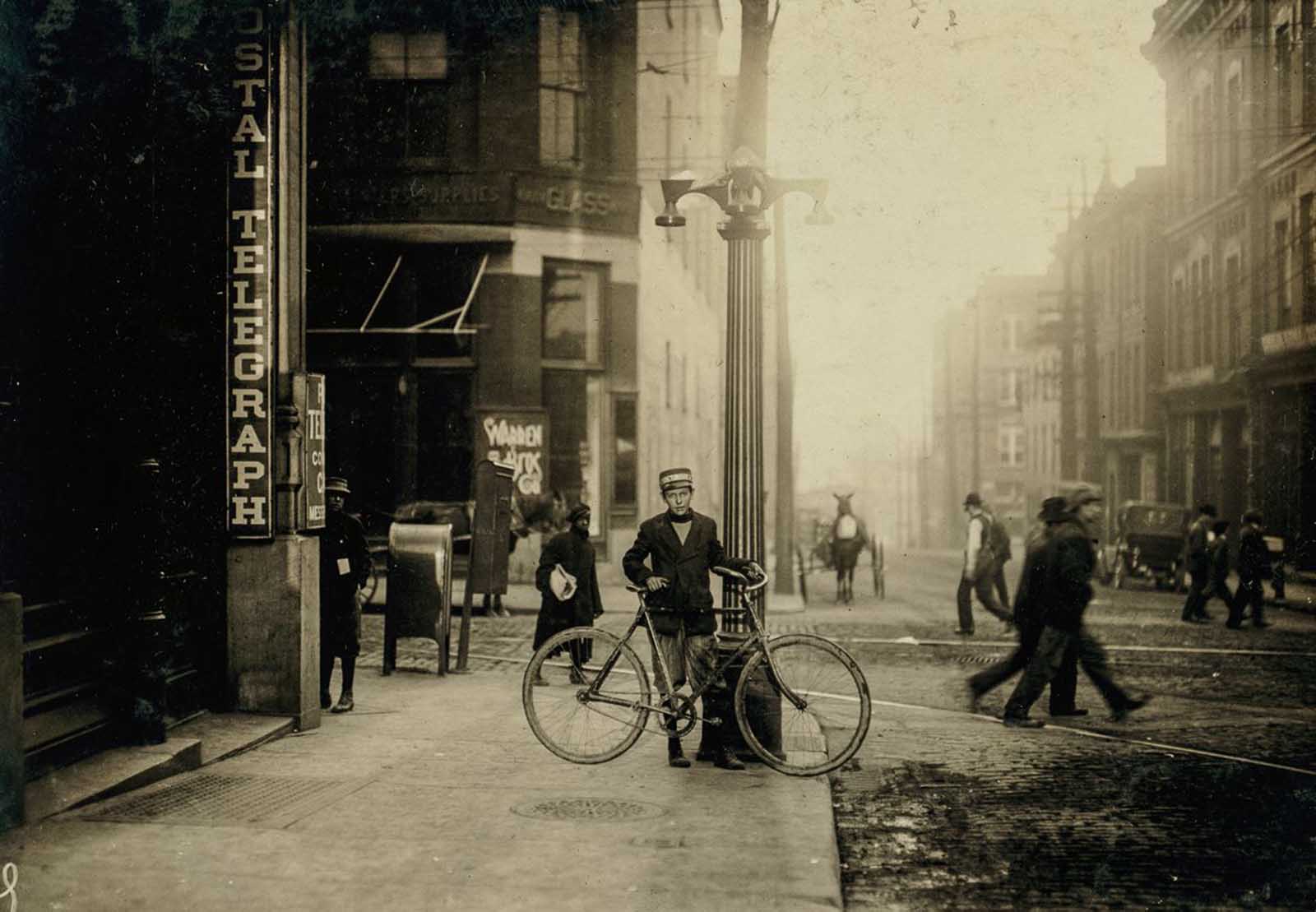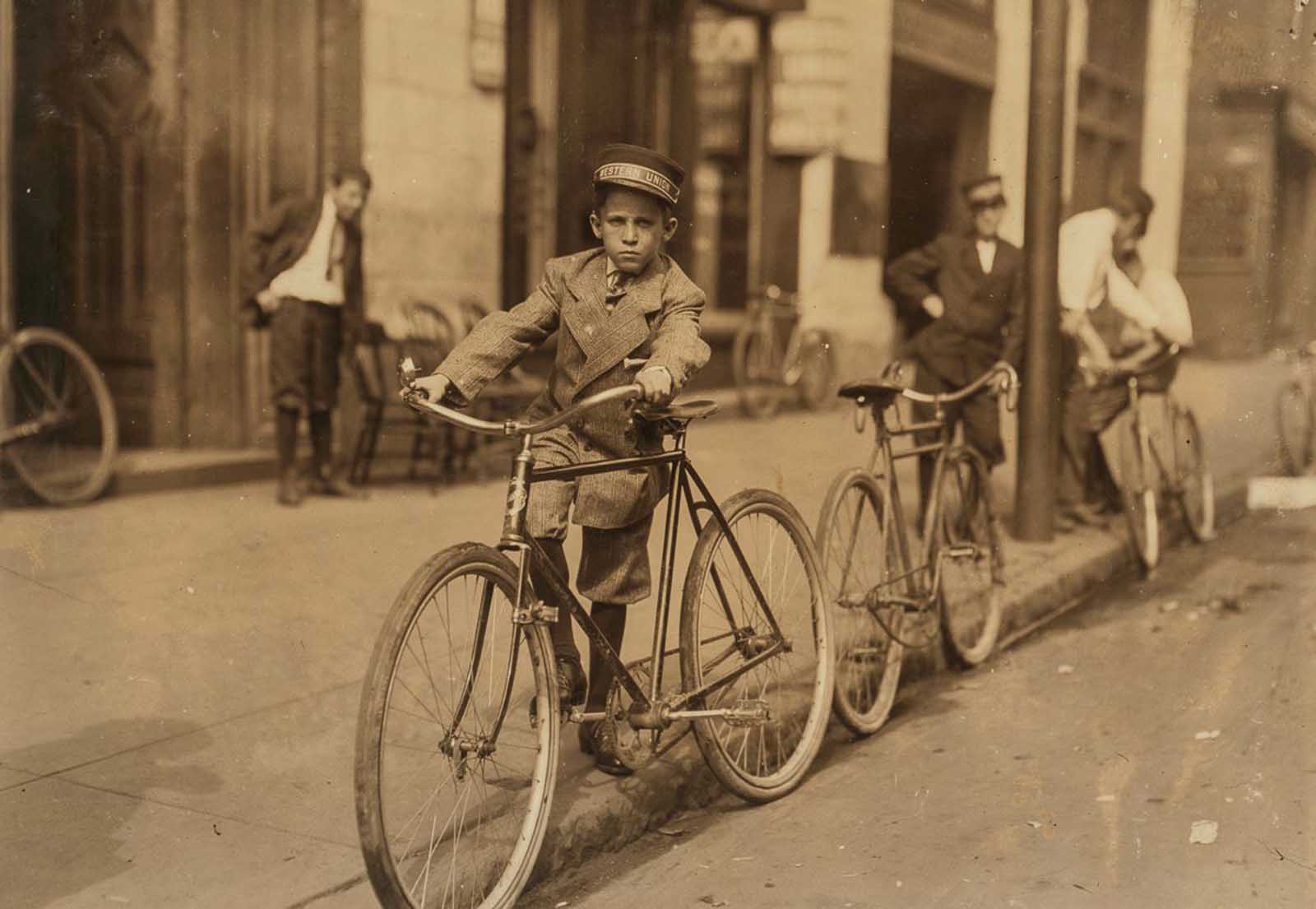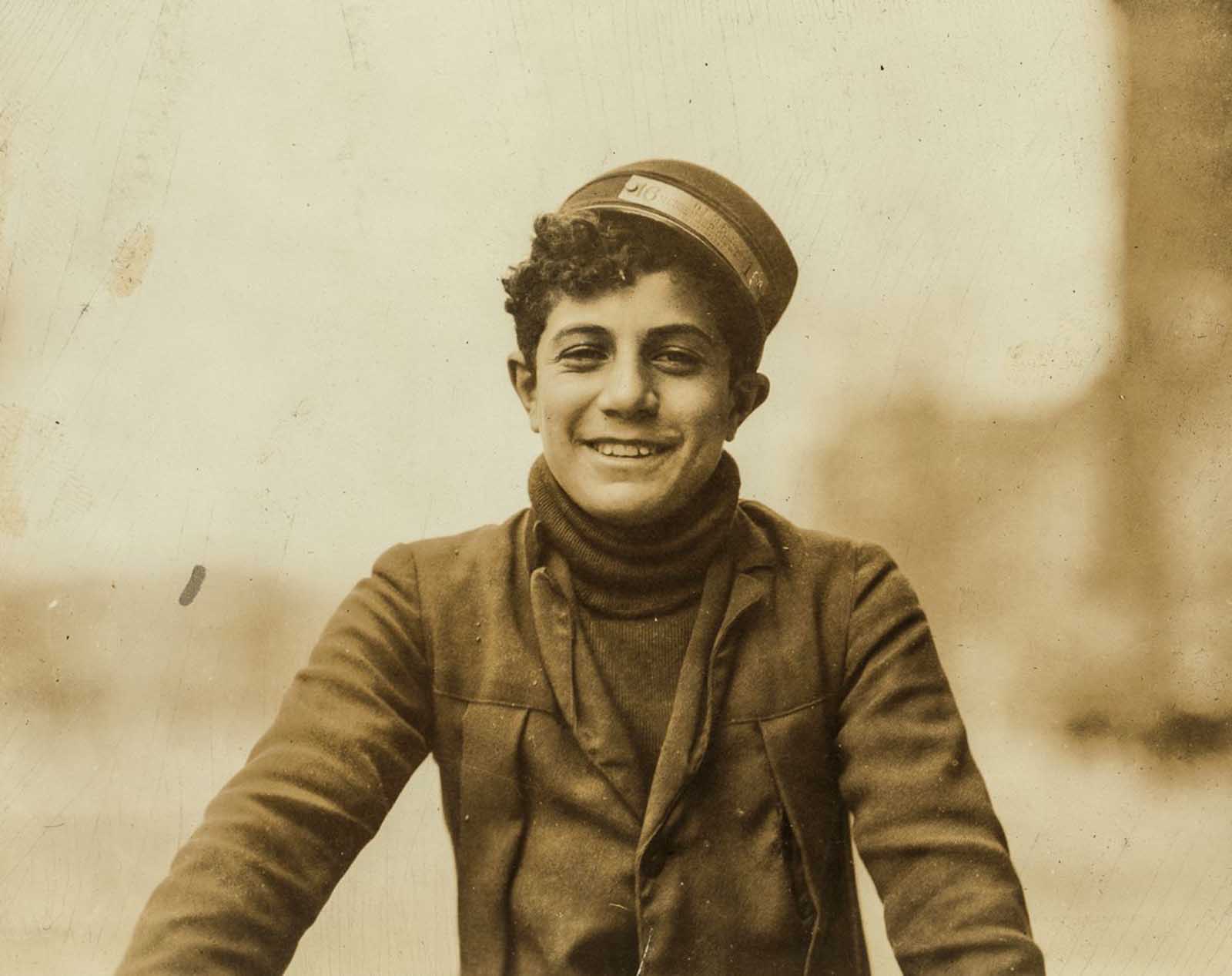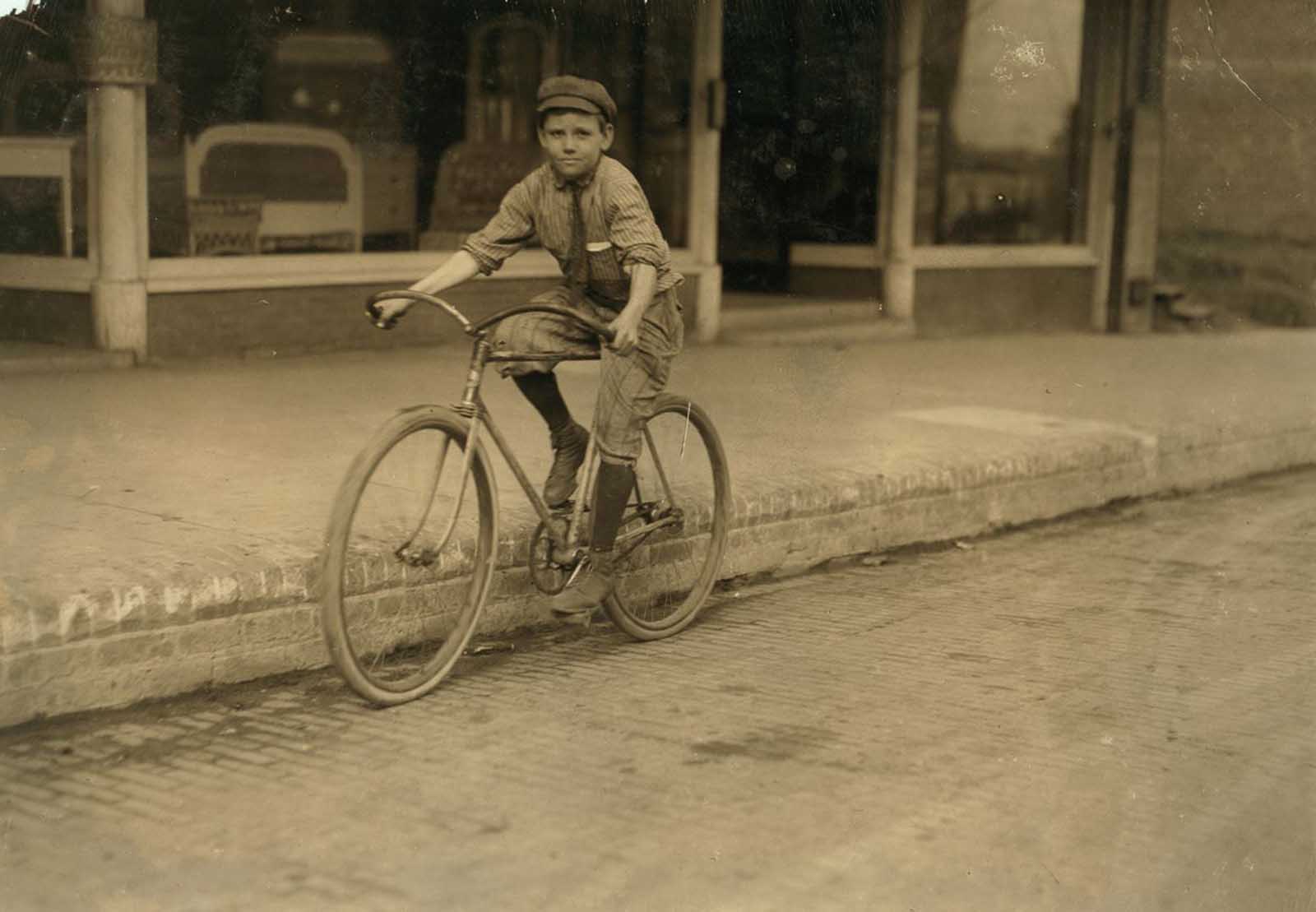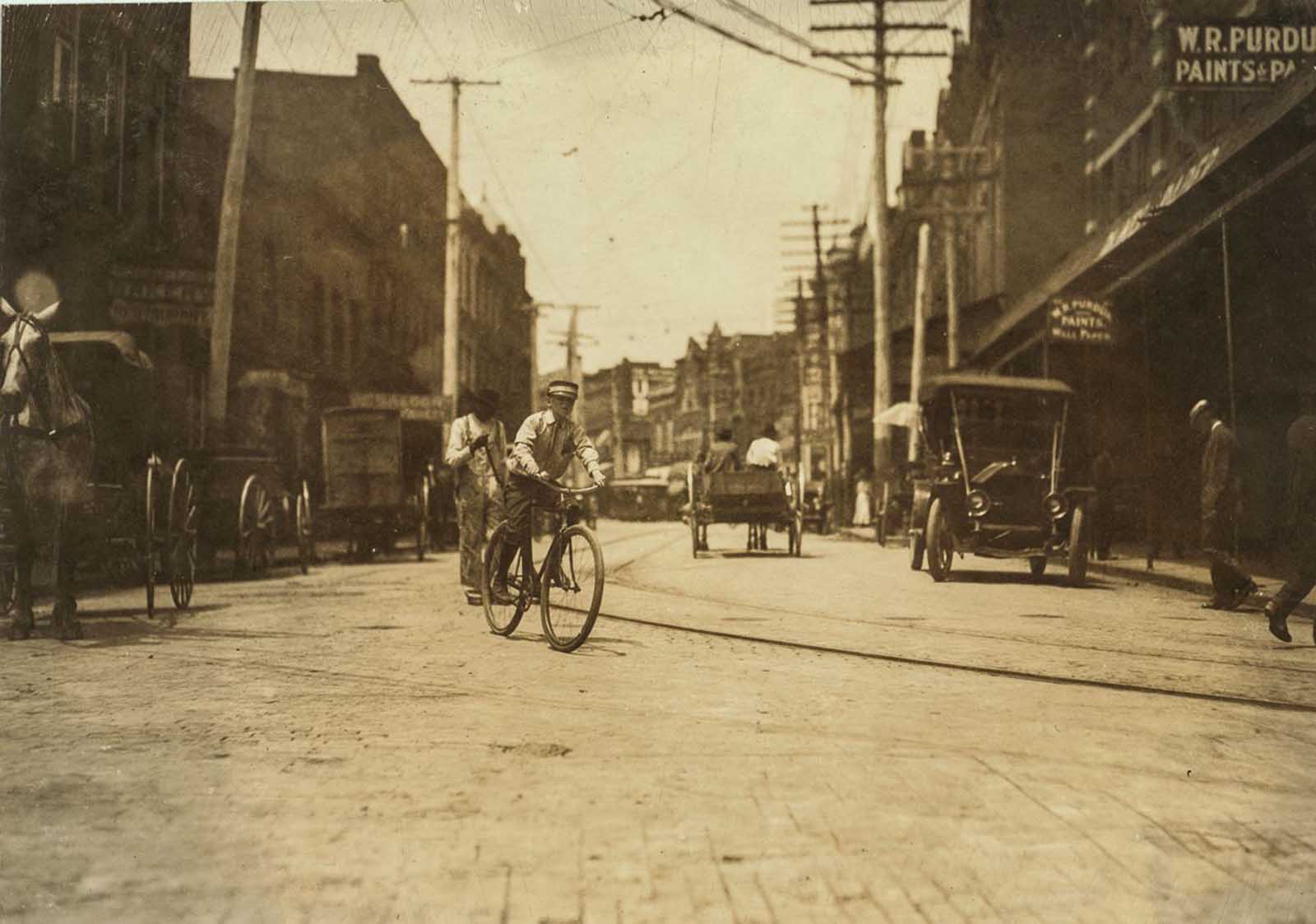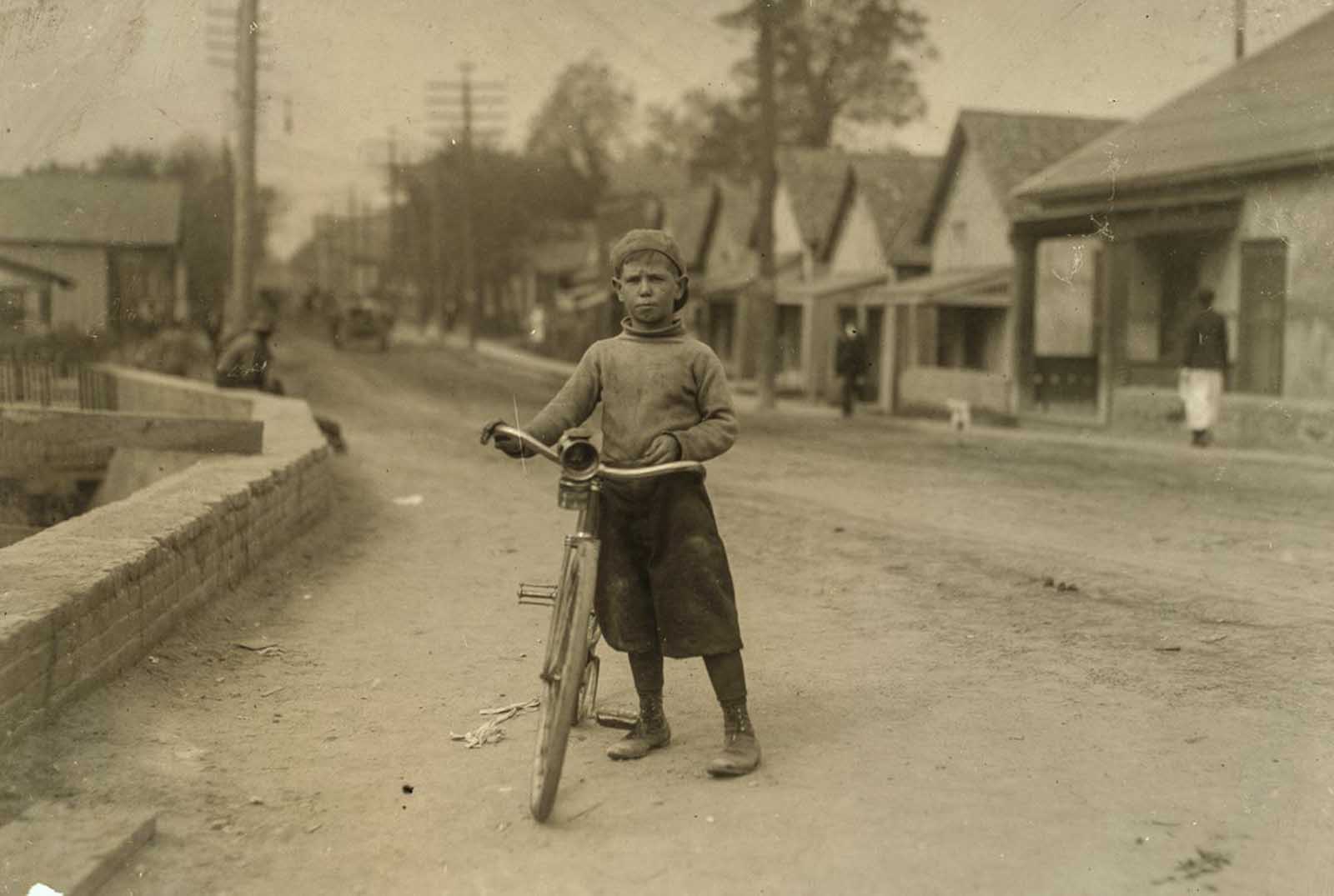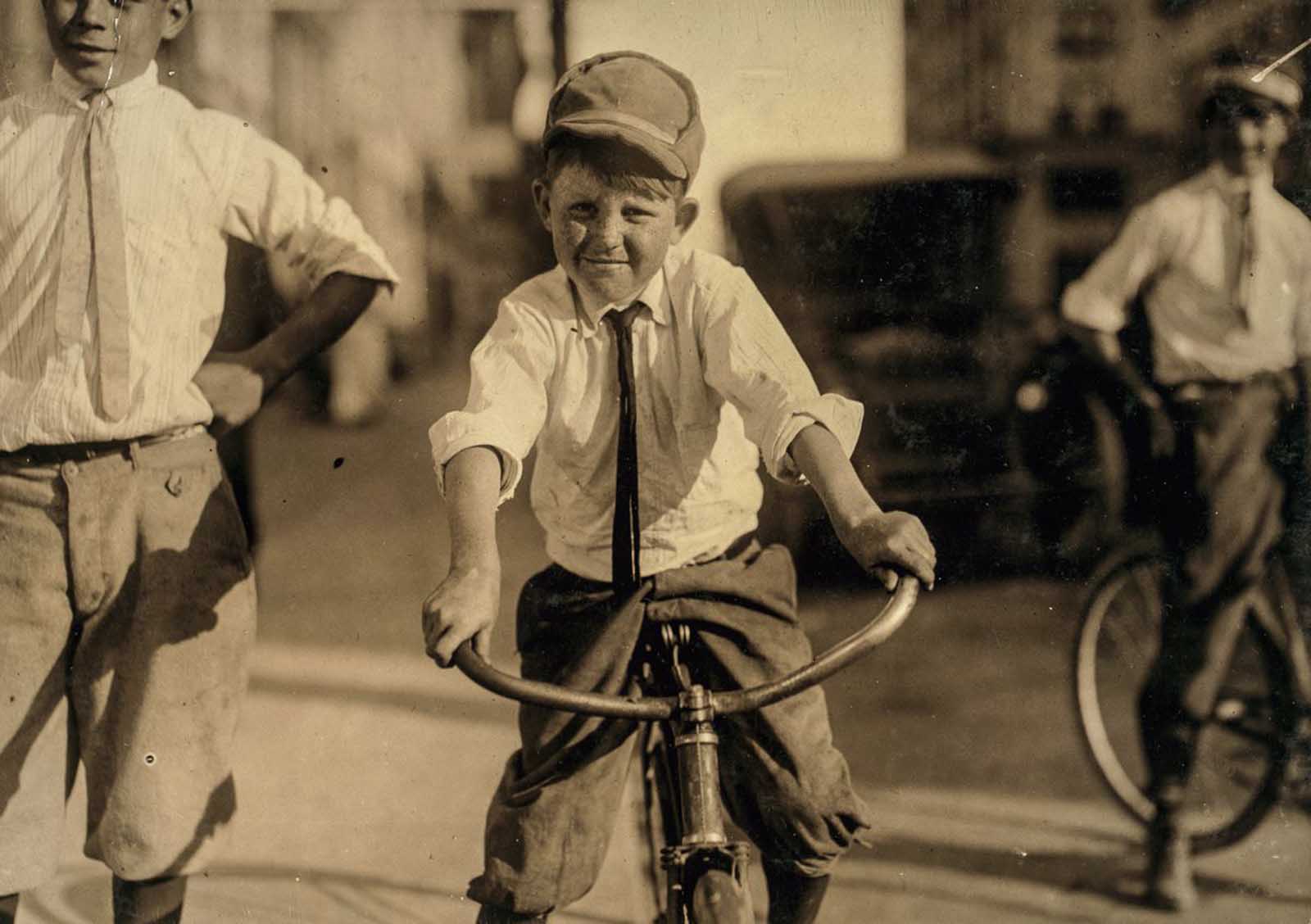Almost immediately after the development of the pedal-driven velocipede in the 1860s, people began to use the bicycle for delivery purposes. David V. Herlihy’s 2004 book on the early history of the bicycle contains several references to bicycle messengers working during the late 19th century, including a description of couriers employed by the Paris stock exchange in the 1870s. During the bicycle boom of the 1890s in the United States, Western Union employed a number of bicycle telegraph boys in New York City, San Francisco, and other large population centers. Most of the messengers worked for telegraph companies or drug stores and spent exhaustingly long hours making deliveries. In his interview notes, Hine expressed particular concern about the children’s exposure to danger and vice — many of the youngsters’ assignments took them into red-light districts rife with drug dealers and sex workers. The photos that Hine took became the face of the child labor reform movement and ultimately helped push through the 1916 passage of the Keatings-Owen Act, which set age and shift length restrictions for young workers. While the act was struck down by the Supreme Court, it set the stage for lasting reform to be created during the New Deal of the 1930s. (Photo credit: Library of Congress). Notify me of new posts by email.
Δ Subscribe
